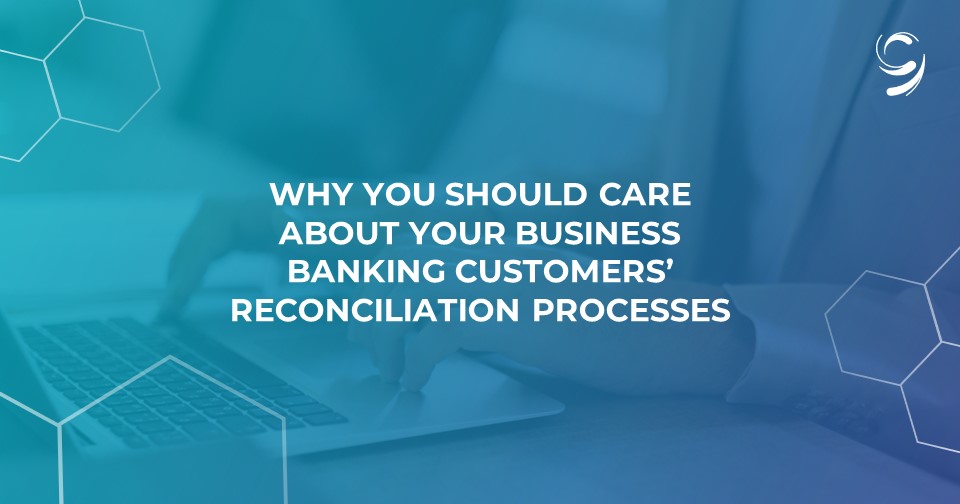How offering integrations with third-party systems boosts customer satisfaction and revenue
Do you provide your business customers with integrations that support fast and accurate reconciliation by making account information accessible from within NetSuite, QuickBooks or other popular systems?
If not, you’re missing out on a big opportunity to improve customer satisfaction and retention, attract new customers and increase revenue. Below we explain why.
The challenges of a manual process
Businesses depend on accounting and ERP software such as NetSuite, QuickBooks, Xero and Sage Intacct to reconcile their general ledgers (GLs) against their bank account statements. For many companies, this involves manually importing bank account data into their system of record.
Accounting staff log into their bank’s portal, download a file containing transaction information, then upload that file to their accounting or ERP system, where they then compare the bank’s data to the GL data. This manual process has two major drawbacks:
- It’s time consuming: Many companies have multiple bank accounts from which they need to download data. If there is a continuous close process that requires weekly or daily reconciliation, significant time can be spent on this tedious manual process, especially since the data within each downloaded file needs to be manually mapped to fields within the accounting system.
- It’s prone to errors: Like any manual process, this one runs the risk of human errors. For example, file data may be incorrectly mapped to the accounting system. The wrong file can also be uploaded—or maybe it’s the right file, but it’s accidentally uploaded twice, causing data duplication. Failing to catch these mistakes immediately results in potentially significant financial inaccuracies.
A better approach: direct integration
Enabling business customers to access their account information directly from their preferred accounting and ERP systems is a win-win for your customers and your bank. Open finance platforms such as Ninth Wave Direct provide a seamless, secure way for corporate customers to integrate permissioned financial data into their existing processes and workflows.
With an open finance platform, your business banking customers no longer have to depend on time-consuming, error-prone manual processes to access their account data in the same place as their GL. Application programming interfaces (APIs) are used to share current account information with the system of record, where it is displayed directly within the user interface.
When it’s time to reconcile accounts, staff already have everything they need at their fingertips. Because the “conversation” between the accounting or ERP system and the bank’s API never changes, they never have to worry about working with information that’s outdated or inaccurate. Reconciliations are completed faster, freeing up time for staff to spend on other projects.
Offering integrations with NetSuite and other popular accounting packages provides many benefits for your bank as well, including:
- Increased customer acquisition, satisfaction and retention: The ability to integrate bank information within accounting and ERP platforms has moved from a nice-to-have to a must-have feature for many businesses. Offering this service provides a competitive advantage that can help you win new business and prevent existing customers from seeking out the competition.
- Enhanced data security: The API technology used in open finance platforms such as Ninth Wave Direct ensures data security by providing control over what data is shared with who and how. Security is further enhanced by the fact that only the required information is retrieved from the bank account and shared with the third-party system–not anything and everything under the sun.
- Increased revenue: Integrations offer revenue-generating opportunities when offered as a standalone service or bundled with an account package.
Implementing an API-based open finance platform also comes with another big benefit: the ability to layer in more advanced features. Once you have streamlined the reconciliation process, you can provide additional value by enabling customers to initiate internal transfers, execute payments, submit stop payment requests for checks and enhance balance and cash flow reporting.
Want to learn more?
Identifying the right open finance strategy and platform for your bank can seem like an overwhelming endeavor. Talking to a company like Ninth Wave that has proven experience helping banks implement these strategies is a good first step.
Ninth Wave has over 20 years of experience enabling secure data connectivity between financial institutions and third-party applications, including seven of the top 10 U.S. banks.
Contact us for a free consultation or a demo of our Ninth Wave Direct open finance solution.
About Ninth Wave
Ninth Wave delivers secure, seamless, and standardized data connectivity to fintechs and financial institutions of all sizes, through a single point of direct integration to a universal suite of open finance APIs. With configurable controls, visibility, and insights into all data sharing and data acquisition connections between aggregators, third-party apps, and internal applications, Ninth Wave empowers financial institutions and their customers with access and oversight to their connected apps, enabling secure data exchange in a holistic and scalable open finance ecosystem. Offering solutions for retail and commercial banks, wealth managers, credit card issuers, tax providers, and more, Ninth Wave provides unparalleled connectivity and universal compatibility to complex information systems, unlocking innovation, potential, and performance for your data. Contact us to learn more about Ninth Wave’s secure data connectivity features. Empowering open finance. At scale, at last.






